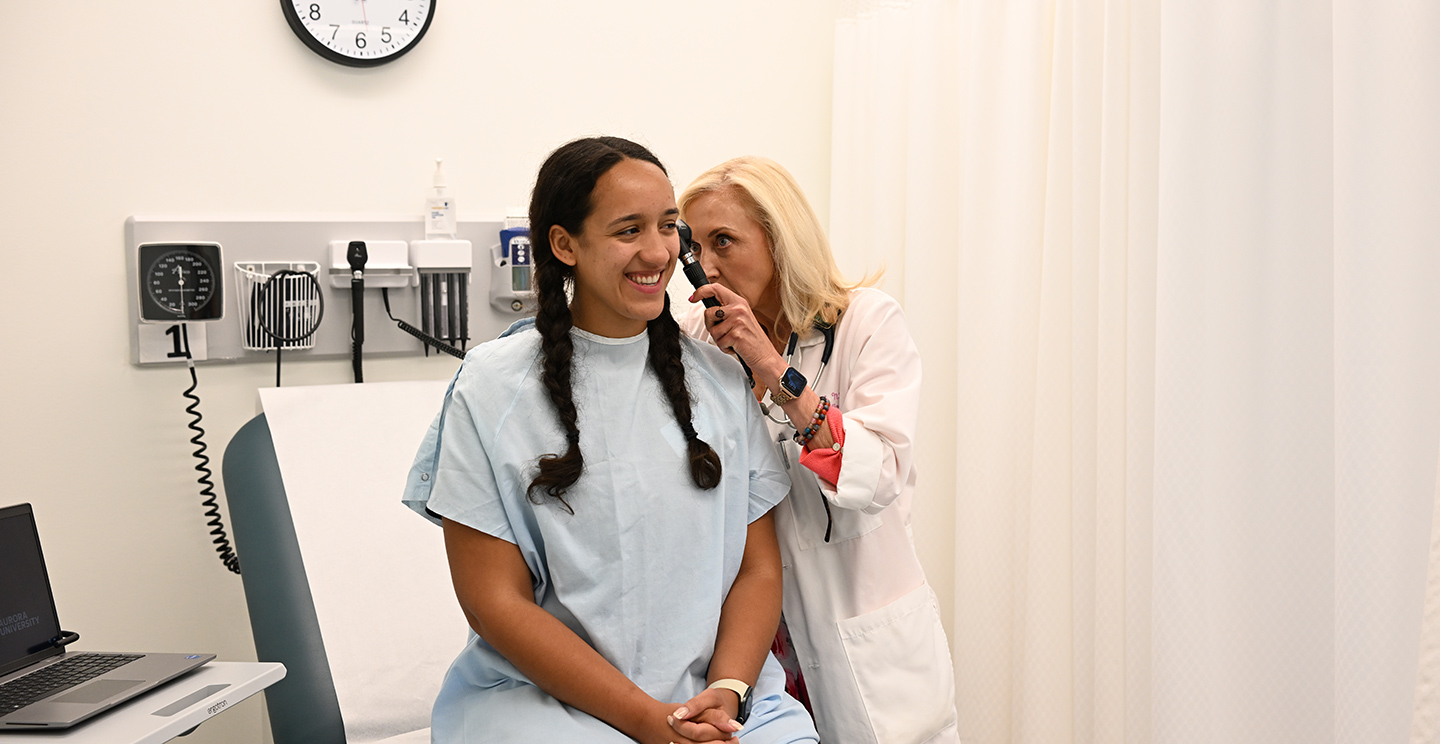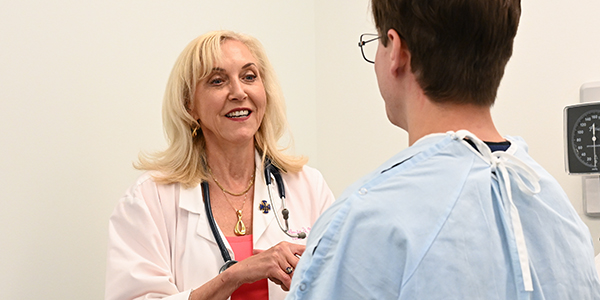Doctor of Nursing Practice, Family Nurse Practitioner (DNP-FNP)

Why earn a Doctor of Nursing Practice, Family Nurse Practitioner degree at Aurora University?
Aurora University’s Doctor of Nursing Practice, Family Nurse Practitioner (DNP-FNP) program prepares nurses to become primary care providers and lead evidence-based initiatives in quality improvement, leadership, informatics, policy, advocacy, and population health.
This hybrid program will give you the knowledge, competencies, and professional values you need to develop, deliver, and evaluate primary care across the lifespan at the highest level of nursing practice.
- You will participate in a variety of clinical practicums that provide experiences in different clinical settings, including emergency department, family practice, internal medicine, and women's health, preparing you to become a highly-skilled primary care provider for patients throughout the lifespan.
- This 77-hour program will be completed in a hybrid format, allowing you to balance your personal commitments with academic and career aspirations.
- BSN and MSN graduates will not only obtain the DNP — the practice-focused terminal degree in nursing — but also will be eligible to sit for the FNP certification exam.
DNP-FNP Program Mission
To prepare nurses to become primary care providers with the required knowledge and skills to lead innovative, evidence-based practice initiatives that focus on quality improvement, leadership, informatics, policy, advocacy, and population health.
DNP-FNP Program Goals
- To prepare graduates to integrate scientific knowledge, research evidence, and analytical methods to improve healthcare outcomes, develop new practice approaches, and design evidence-based interventions for complex clinical challenges.
- To prepare graduates to become leaders in healthcare policy advocacy, quality improvement, and equitable care delivery while leveraging information systems and technology to enhance patient safety and optimize health outcomes.
- To prepare graduates to collaborate with inter-professional teams to implement population health strategies, advocate for policy changes, and provide compassionate, culturally-competent care to diverse patient populations across the lifespan.
Helping to Solve the Nursing Shortage
Experts predict that Illinois and the nation will require an ever-growing number of nurses in the decades ahead. AU is committed to helping meet this predicted nursing shortage through our DNP-FNP program.
annual median salary for nurse practitioners
2023-2033 projected job growth rate
For 23 consecutive years, Americans have rated nurses as the No. 1 most ethical and honest profession.Gallup Poll 2025
Sample DNP-FNP Schedule
| Term | Classes |
|---|---|
| YEAR ONE | |
| Fall: 8 semester hours |
|
| Spring: 9 semester hours |
|
| Summer: 9 semester hours |
|
| YEAR TWO | |
| Fall: 11 semester hours |
|
| Spring: 9 semester hours |
|
| Summer: 12 semester hours |
|
| YEAR THREE | |
| Fall: 11 semester hours |
|
| Spring: 8 semester hours |
|
*Online coursework with required synchronous Zoom meetings
**Includes direct patient care hours
^Includes a weekend intensive
Where our students gain clinical experience
- Amita Health Adventist Medical Center Hinsdale
- Amita Health Mercy Medical Center Aurora
- Amita Health St. Joseph Hospital Elgin
- Ann & Robert H. Lurie Children’s Hospital of Chicago
- Endeavor Health Edward Hospital
- Hillside Rehab & Care Center
- Illinois Youth Center
- Mount Sinai Hospital
- Northwestern Medicine Central DuPage Hospital
- Northwestern Medicine Delnor Hospital
- Northwestern Memorial Hospital
- Rush Copley Medical Center
Career possibilities
Family nurse practitioners can work in a diverse range of settings, including:
- Academic institutions
- Acute or urgent care centers
- Acute care hospitals
- Correctional facilities
- Insurance companies
- Primary care clinics
- Retail clinics
- Skilled or long-term care facilities
